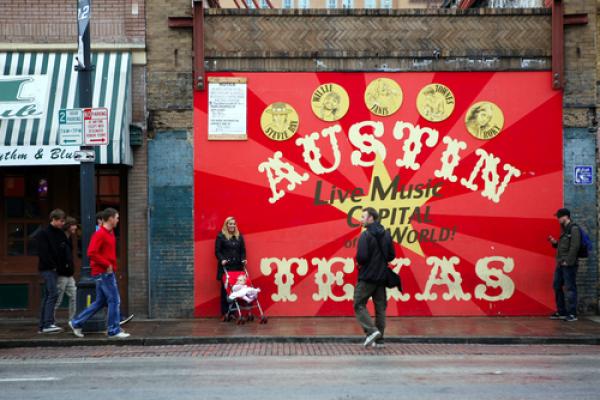AUSTIN, Texas — After a walk around the Texas Statehouse, it became clear they tell a different history here.
Inside the Capitol is a large painting of a onetime Tennessee congressman named David Crockett, who failed in a re-election bid and stormed out west to join the revolution in what was then called Tejas. He arrived in 1836 and died four weeks later at the Alamo in San Antonio.
A plaque beneath the oversized painting suggests Crockett was a laborer who became larger than life when he got to Texas. A more balanced account suggests Crockett had been building his legend for many years, with exotic garb, a self-published autobiography, and fiery speeches against President Andrew Jackson. He yearned to star in Washington, and when that failed, he went west, landing at the Alamo just in time to die there.
An ambitious state needs its mythology.
Outside on the handsome tree-lined walk to Congress Street, a memorial to the Confederate dead explained Texas’ secession from the Union in 1861 as a continuation of the spirit of 1776, a free people wanting only to be free. The dream died when “the North resorted to coercion.”
Sometimes our mythologies collide.
Once you leave the elegant Capitol grounds, you enter a city that must drive large portions of Texas crazy: hip, young, dedicated to coffee, country rock music, and liberal politics.
Downtown Austin feels more like Greenwich Village than the capital of a staunchly conservative state personified by the moralizing fervor that Gov. Rick Perry displayed during his odd but happily brief run for the GOP presidential nomination.
Austin is a college town, home to one of America’s premier state universities. It’s a technology hub, where world-class firms like computer maker Dell seem light-years from cowpokes and barbecue.
On a recent Saturday, streets lined with taverns resembling old-time Texas roadhouses teemed with couples wearing Texas-two-step attire. But judged by their conversations, these were the denizens of Austin’s version of Silicon Valley.
In fact, diversity was everywhere. On the Capitol Walk I saw Hispanics, Asians, blacks, and suburban Anglo families, all getting along. Those who have tried to present Texas as an angry monochromatic force of “Remember the Alamo” stalwarts resisting coastal liberal elites may need to stop believing their press clippings.
Nevertheless, I understand why Texans latched on to Davy Crockett and painted him large, as they did to Stephen Austin, and heroes on down to former Gov. George W. Bush. An emerging society needs its mythology. Storytellers like Crockett go for impact, not historicity.
The same is true in faith. I don’t buy the brand of Christianity that Texas conservatives try to sell. But I know we share a faith that did the same big-canvas treatment on Jesus, surrounding him with dramatic myths and epic adventures, obscuring a reality that is far more demanding than the sweet baby in Bethlehem.
Even so, I found it charming that Texas historians wanted to remember a Tennessee storyteller and malcontent as a normal guy who became something big when he got to Texas. Myths help us to understand some of what we are and want to be. But so do park benches filled with Asians sitting alongside Hispanics and streets teeming with young techies wearing roadhouse costumes.
Those who try to simplify American culture and demand that it fit their uniform standards fail to see the beauty of diversity, and they miss the half-truth – charming, but always partial – of the mythologies we create.
Tom Ehrich is a writer, church consultant and Episcopal priest based in New York. He is the author of “Just Wondering, Jesus” and founder of the Church Wellness Project. His website is www.morningwalkmedia.com. Follow Tom on Twitter @tomehrich.
Austin photo: GSPhotography / Shutterstock.com
Got something to say about what you're reading? We value your feedback!
